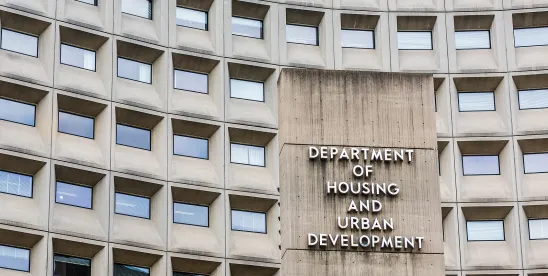On June 24, the Department of Housing and Urban Development (HUD) issued a Request for Information (RFI) to evaluate how Buy Now Pay Later (BNPL) loans may affect FHA-insured mortgage underwriting. The RFI seeks comment on whether short-term, unsecured BNPL debt may distort borrowers’ debt-to-income calculations and undermine housing affordability. Comments are due by August 25, 2025.
The RFI highlights several issues tied to BNPL growth and potential gaps in FHA underwriting standards, including:
- BNPL obligations may escape lender review. Because most BNPL providers do not furnish data to consumer-reporting agencies, these debts may not appear in mortgage applications, leading to undercounted borrower liabilities.
- Phantom debt could mask financial stress. HUD is concerned that borrowers may be managing multiple concurrent BNPL obligations, which could increase delinquency or foreclosure risk—especially if repayment obligations go undetected.
- Current underwriting rules may exclude relevant debts. FHA guidelines generally disregard short-term debts that will be paid off within 10 months and account for less than 5% of monthly income. This policy may overlook material BNPL obligations.
- HUD is seeking data on borrower behavior. The RFI asks whether BNPL usage correlates with financial vulnerability, how underwriters currently detect such loans, and what metrics could distinguish responsible use from overleveraging.
- Policy updates may be on the table. HUD is considering whether to develop BNPL-specific guidance, require more rigorous debt verification practices, or support integration of BNPL data into credit reporting systems.
Putting It Into Practice: HUD’s RFI reflects a growing effort among federal agencies to better understand the risks and regulatory blind spots associated with Buy Now Pay Later products. While the CFPB recently announced plans to rescind its May 2024 interpretive rule applying credit card protections to BNPL loans (previously discussed here), HUD’s initiative suggests that other regulators remain focused on the broader implications of BNPL use.




 />i
/>i
